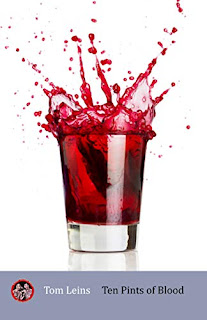I’m certain that 90% of readers will have never heard of this small seaside town in Devon whose biggest claim to fame is presenter Sue Barker. But I think we all know about the overpowering sadness that can engulf the local population of coastal towns.
According to the Guardian:
A patch of the Devon coastline on England’s south-coast that includes the towns of Torquay, Paignton and Brixham, Torbay has higher rates of cardio-vascular disease, respiratory disease, and diabetes than the national average. Its ageing housing stock – it has high numbers of former guest houses converted into relatively cheap houses of multiple occupation, and caravan parks – is identified as a key environmental factor in poor health outcomes in the area.
Meanwhile, the Financial Times has talked about how:
…in Britain, it is increasingly on the country’s physical edges, in its seaside towns, that you find people on the outside of the economy looking in. Blackpool exports healthy skilled people and imports the unskilled, the unemployed and the unwell. As people overlooked by the modern economy wash up in a place that has also been left behind, the result is a quietly unfolding health crisis. More than a tenth of the town’s working-age inhabitants live on state benefits paid to those deemed too sick to work. Antidepressant prescription rates are among the highest in the country. Life expectancy, already the lowest in England, has recently started to fall.
This combination of cheap, faded glamour, nostalgia for childhood and a population with ‘Shit Life Syndrome’ makes these little towns a perfect setting for crime novels.
Describing himself as a disgraced ex-film critic, Tom Leins has been steadily producing quality collections of noir writing set in Paignton and using the character of Joe Rey to explore the dark, seedy underworld that exists in the town.
A character filled with self-loathing and an ability to take a beating; Rey is a narrator who immediately clicks with the reader due to his flashes of dark wit, (loose) moral code and ability to attract violence, as hinted at when he describes himself as:
…not a skilled investigator. Far from it…but I somehow manage to scrape a living. If ten years of mostly bitter experience has taught me anything, it is that finding the living is far easier than finding the dead. No blood-streaked shovels, no cobwebbed cadavers, and only the occasional bad dream.
Acting as a collection of short, interconnected stories, Ten Pints . . . sees our intrepid anti-hero tackle paedophile mayors, serial killers, UKIP types, local gangsters and bare-knuckle boxers. An ugly, insidious world where no one is innocent, and everyone has a face like an unmade bed.
And it’s utterly enthralling in its ugliness.
While some writers would shy away from going into lurid detail, Leins goes straight for the jugular and forces the reader’s face into the dirt. Not only is it a demonstration of the darker impulses that exist in every town and city, but it also acts as an example of how social and economic degradation can be fertile ground for these dark impulses. And there’s also hints of sadness and humour in the writing, such as this:
We are sat outside a crumbling tenement in Foxhole . . . Naomi is touching up her makeup in the rear-view mirror, like she’s going to a fucking job interview . . . not preparing to confront an elderly fucking child molester.
Shit Life Syndrome personified!
With a brisk pace, plethora of unsavoury characters and tense, clipped writing, Ten Pints . . . wallops.
Tom Leins, 2020, Ten Pints of Blood. Close To the Bone Publishing. ISBN-13: 979-8644449712
⏩ Christopher Owens was a reviewer for Metal Ireland and finds time to study the history and inherent contradictions of Ireland. He is currently the TPQ Friday columnist.







Another great review Christopher. Simply gonna have to give it a read.
ReplyDeleteThanks again for the review, Christopher. It's really satisfying when someone engages with one of my books on this level. I'm really glad you enjoyed it!
ReplyDelete